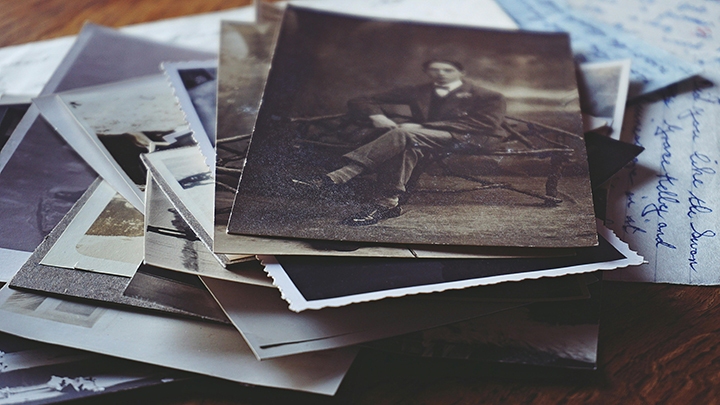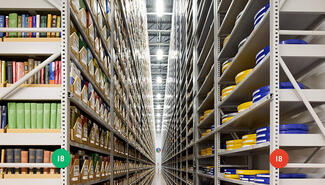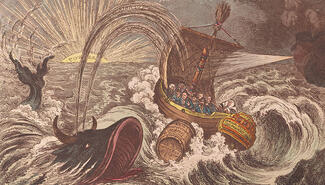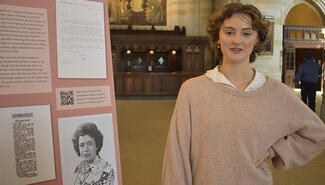Preserving your history: Archivist Jennifer Coggins shares tips of the trade
The many photos and memorabilia we all accumulate over time—documents, photograph, digital media—are precious artifacts, worth preserving to share with future generations.
But where to begin?
The Beinecke Rare Book and Manuscript Library provides advice and resources to help individuals organize, preserve, and share their personal histories.
This summer, Jennifer Coggins, community engagement archivist at the Beinecke Library, presented her in-person workshop “Preserving Your History: Getting Started with Your Own Archives” at the New Haven Free Public Library (NHFPL) to a local audience eager to build a legacy collection.
Coggins offers practical, encouraging advice for taking on what can sometimes feel like a daunting task. “You don’t have to go all out,” she says. “There are simple steps you can take that will go a really long way toward protecting the materials that document your history.”
“A lot of this work is about narrowing down what materials are most important to you, what are most vulnerable to damage and deterioration. You don’t have to put each photo in its own sleeve or scan every item or even look at every item to make a huge difference in what’s available for your loved ones, your community, and for the historical record more broadly fifty, one hundred, or two hundred years from now.”
In her workshop—and in her online workshop presentation—Coggins presents aspiring archivists with a series of questions to guide them through the decision-making process: from curating and organizing to storing and documenting.
- Why preserve your archive? What are your goals?
- What do you have?
- What do you want to keep?
- Who are you keeping them for?
- How should you organize your materials?
- How should you store your materials and where?
A personal or organizational history has value for future generations of family and community members. But Coggins believes its value extends beyond sharing stories. Preserving the experiences and activities of the groups and communities we are a part of, she says, helps create a more representative and inclusive historical record. “Preserving your own materials,” Coggins says, “is a way to counter traditional narratives in the way we see the past and present.”
On Wed., Dec. 6, Beinecke Library and the NHFPL will host another program on preserving your own archives. Guest speaker Graham Stinnett, an archivist in Archives and Special Collections at the University of Connecticut Library, will discuss the importance of activist archives and how to preserve and share them for future generations. After the presentation at NHFPL’s Ives Main Library, attendees will have the opportunity to ask for guidance on preserving their own records related to activism.
View the online presentation of the workshop “Preserving Your History.” Residents of the Greater New Haven area can also email Jennifer Coggins for advice on how to develop a plan for a project and find resources, supplies, and equipment.
Learn more about Beinecke Library’s in-person workshops and resources for preserving your personal, family, or organizational records.
—Deborah Cannarella
Photo by Suzy Hazelwood



